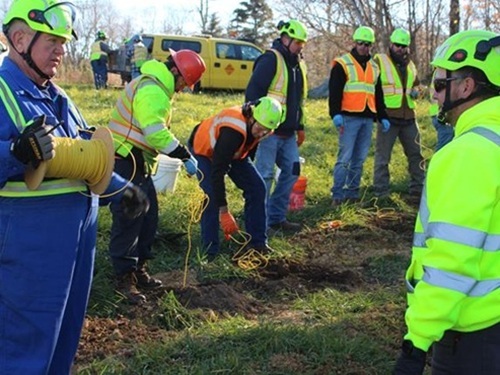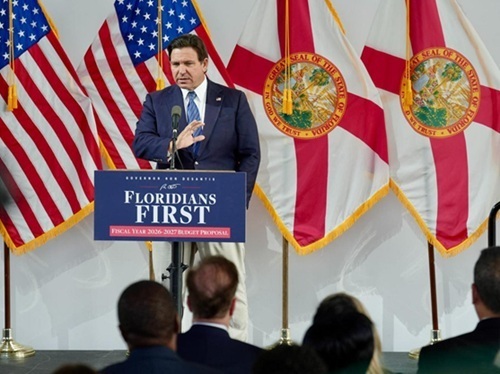To provide electric vehicles or EVs with the ability to recharge their power supply wirelessly while “on the go,” the Indiana Department of Transportation and Purdue University plan to test a new material called “magnetizable concrete.”
[Above photo by Magment GmbH]
Developed by German startup Magment GmbH, the material should enable wireless charging of EVs as they move down the highway.

The project – which starts this summer – is part of the Advancing Sustainability through Power Infrastructure for Road Electrification or “ASPIRE” initiative: an engineering research center funded by the National Science Foundation that involves the collaboration of universities, government laboratories, businesses, and other stakeholders developing next-generation charging technologies for transportation electrification.
Phase 1 and 2 of the project feature pavement testing, analysis, and optimization research conducted by the Joint Transportation Research Program at Purdue’s West Lafayette campus. In Phase 3, the Indiana DOT will construct a quarter-mile-long testbed at a location yet to be determined, where engineers will test the innovative concrete’s capacity to charge heavy trucks operation at high power (200 kilowatts and above).
Upon successful completion of testing of all three phases, the Indiana DOT plans to use this concrete to electrify a yet-to-be-determined segment of interstate highway.

“As electric vehicles become more widely used, demand for reliable, convenient charging infrastructure continues to grow, and the need to innovate is clear,” Joe McGuinness, Indiana DOT commissioner, said in a statement.
“We’re excited to partner with Purdue and Magment to explore incorporating wireless charging technology into highway infrastructure,” he added.
“Indiana is known as the Crossroads of America and we’re committed to fortifying our position as a transportation leader by innovating to support the emerging vehicle technology,” added Governor Eric Holcomb (R). “This partnership … sends a strong signal that Indiana is on the leading edge of delivering the infrastructure needed to support the adoption of electric vehicles.”
“Through this research, we envision opportunities to reduce emissions and near-road exposures to pollutants, coupled with other transportation innovations in shared mobility and automation that will shape data-driven policies encouraging advances,” added Nadia Gkritza, a professor and ASPIRE campus director at Purdue.
 States
States
NCDOT Staff Participate in ‘Explosive’ Technical Training
December 19, 2025 States
States

